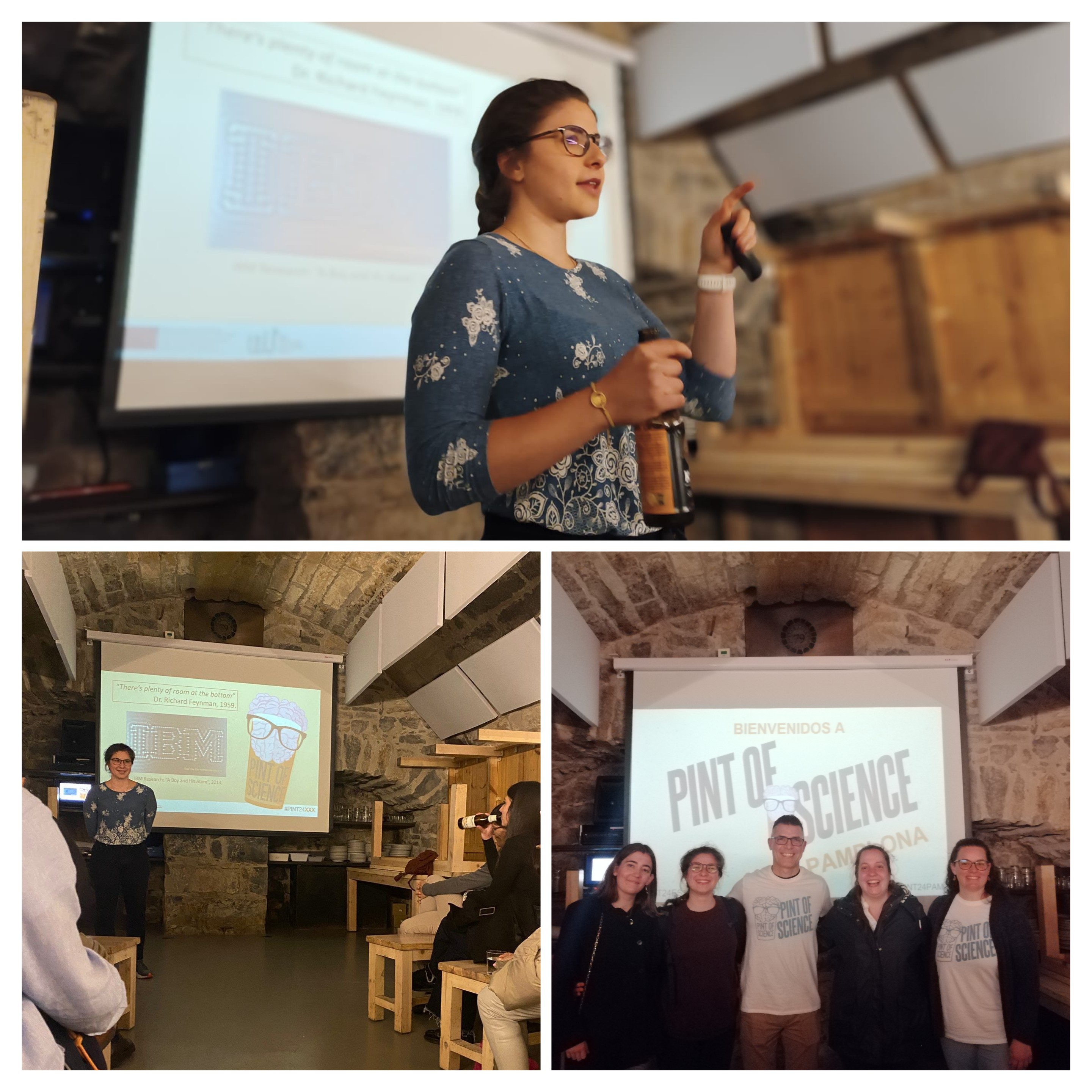Sara Lorenzoni has participated in #Pint24 talking about the nanomaterials - wit
News and Events

Yesterday the last session of the Pint Of Science 2024 took place. Sara Lorenzoni, a WIT PhD fellow, talk about the interesting world of Nanoparticles in her talk entitled 'Nanomaterials: a revolution in Biomedicine'.
The Pint of Science festival is an international event that is held annually in hundreds of venues across the world, with the aim of getting people closer to the science. How? By bringing the science to the bars, so that the researchers can share their knowledge and achievements in different fields with the general public, using an understandable language and a friendly way.
Following the leitmotiv of the event, Sara made us go deeper into our imagination, and proposing curious similes, she made us realize how these extra tiny materials (1000 times smaller than the diameter of a human hair) and the research that is being done in different fields of application are shaking up the world of biomedicine.
Since therapies based on nanoparticles work as precise messengers or mini-taxis that transport drugs directly to the specific cells to be treated, exactly where they are needed, these treatments avoid attacking healthy cells and reduce serious side effects of conventional therapies such as chemotherapy.
Sara is a WIT Predoctoral researcher at the Department of Pharmaceutical Sciences of Unav, under the guidance of Dr. María Blanco Prieto. Sara is developing her thesis on Targeted nanomedicines for the treatment of neuroblastoma, to 'cure better' this severe pediatric cancer, because children do not only need to survive but to grow up as healthy adults.
The benefits of these scientific advances for the society are unquestionable, and we look with hope to the future in relation to the target treatments of serious diseases and the application in tissue engineering, such as the recovery of neural or bone tissue.